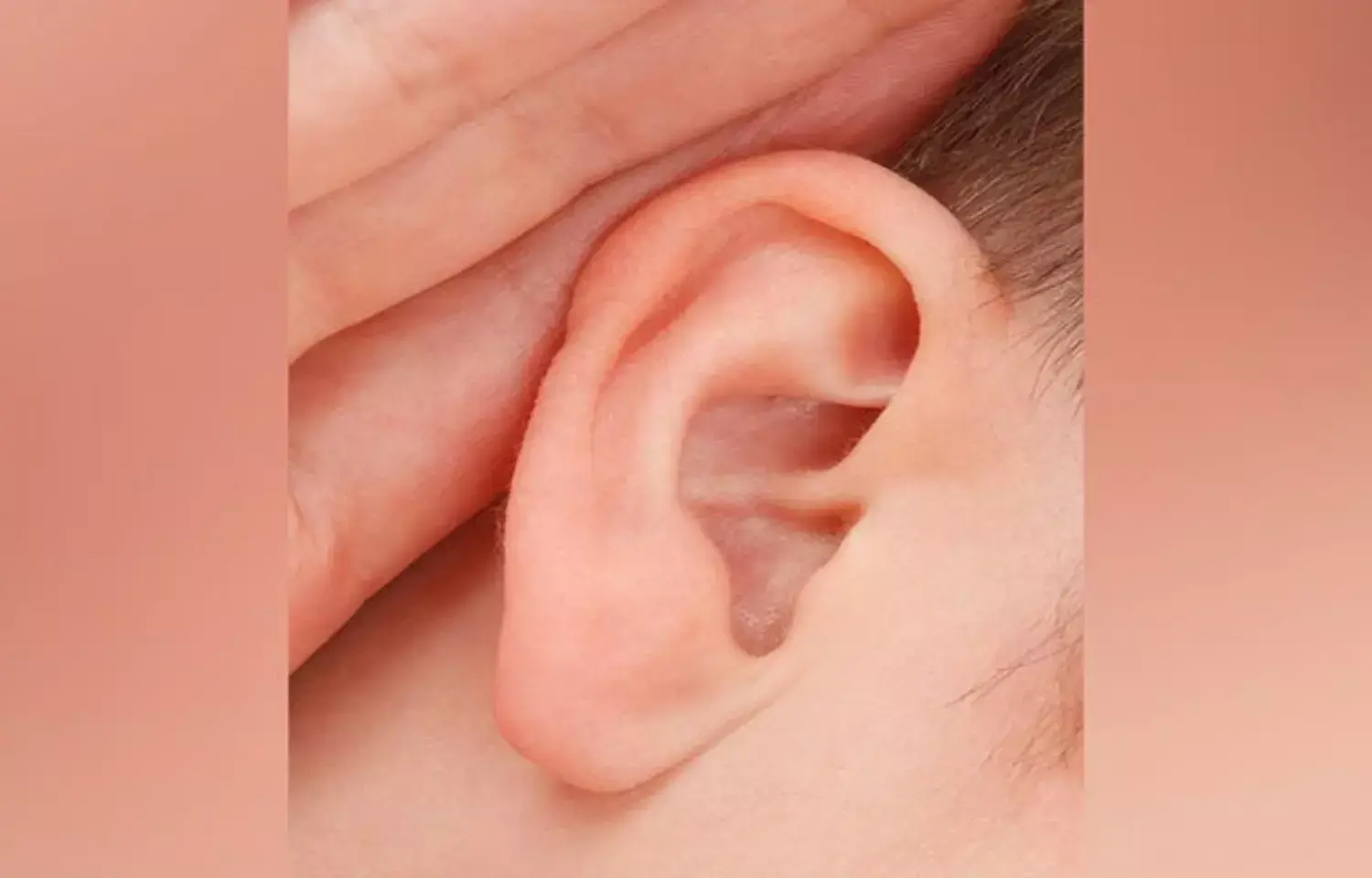- Home
- Medical news & Guidelines
- Anesthesiology
- Cardiology and CTVS
- Critical Care
- Dentistry
- Dermatology
- Diabetes and Endocrinology
- ENT
- Gastroenterology
- Medicine
- Nephrology
- Neurology
- Obstretics-Gynaecology
- Oncology
- Ophthalmology
- Orthopaedics
- Pediatrics-Neonatology
- Psychiatry
- Pulmonology
- Radiology
- Surgery
- Urology
- Laboratory Medicine
- Diet
- Nursing
- Paramedical
- Physiotherapy
- Health news
- Fact Check
- Bone Health Fact Check
- Brain Health Fact Check
- Cancer Related Fact Check
- Child Care Fact Check
- Dental and oral health fact check
- Diabetes and metabolic health fact check
- Diet and Nutrition Fact Check
- Eye and ENT Care Fact Check
- Fitness fact check
- Gut health fact check
- Heart health fact check
- Kidney health fact check
- Medical education fact check
- Men's health fact check
- Respiratory fact check
- Skin and hair care fact check
- Vaccine and Immunization fact check
- Women's health fact check
- AYUSH
- State News
- Andaman and Nicobar Islands
- Andhra Pradesh
- Arunachal Pradesh
- Assam
- Bihar
- Chandigarh
- Chattisgarh
- Dadra and Nagar Haveli
- Daman and Diu
- Delhi
- Goa
- Gujarat
- Haryana
- Himachal Pradesh
- Jammu & Kashmir
- Jharkhand
- Karnataka
- Kerala
- Ladakh
- Lakshadweep
- Madhya Pradesh
- Maharashtra
- Manipur
- Meghalaya
- Mizoram
- Nagaland
- Odisha
- Puducherry
- Punjab
- Rajasthan
- Sikkim
- Tamil Nadu
- Telangana
- Tripura
- Uttar Pradesh
- Uttrakhand
- West Bengal
- Medical Education
- Industry
Post auricular inj of prednisone improved clinical outcomes for patients with sudden deafness: Study

China: Treatment of sudden deafness with type 2 diabetes with a postauricular injection of methylprednisolone sodium succinate is associated with better therapeutic recovery, finds a study published in Computational and Mathematical Methods in Medicine. The treatment also reduced the risk of blood glucose elevation, improved pure-tone hearing threshold, and improved clinical outcomes.
There is no clarity on the etiology of sudden deafness. In recent years, the life rhythm of people is getting faster and faster. Environment, fatigue, diet, psychology, and other factors have increased the morbidity rate of sudden deafness and improved patients, quality of life. Also, work efficiency is greatly affected.
Against the above background, Jing Tao, Department of Otolaryngology, Lishui People's Hospital, Lishui, China, and colleagues aimed to investigate the clinical efficacy of postauricular injection of methylprednisolone sodium succinate in the treatment of sudden deafness with type 2 diabetes in a prospective study.
For this purpose, the researchers selected sixty patients with sudden deafness who were treated at the hospital from January 2018 to October 2020. They were divided into 30 cases according to the random number remainder grouping method, each in the comparison group and the observation group.
The comparison group was treated conventionally, and the observation group was treated with a postauricular injection of methylprednisolone sodium succinate on the basis of the comparison group. The researchers observed and compared patients in the two groups on the 3rd, 6th, and 9th days after treatment with pure-tone hearing threshold checks and regular monitoring of blood glucose, blood rheology, and other indexes.
The key findings of the study are as follows:
- On the 7th, 14th, and 30th days after treatment, the pure-tone audiometric thresholds of the two groups were gradually decreased, and the changes in the pure-tone audiometric thresholds in the observation group were greater than those in the control group.
- After lunch on the 6th day and after lunch on the 9th day, it was lower than that in the control group, and the difference was statistically significant.
- 30 days after treatment, the blood viscosity, fibrin, and platelet aggregation rate of the observation group were significantly lower than those of the control group.
- After treatment, the clinical efficacy rate of the observation group was 96%, which was significantly higher than that of the control group, 80%, and the above differences were statistically significant.
The researchers wrote, "postauricular injection of methylprednisolone sodium succinate has a low glycemic impact and no systemic adverse effects were observed." "It is clinically effective, safe, simple, and reliable without toxic side effects, easily accepted by patients and their families, having good patient compliance and few side effects and provided a reference for treating patients with sudden deafness."
Reference:
Zhenbo Zhong, Xiaofei Wang, Kairui Xu, Jing Tao, "Clinical Efficacy of Retroauricular Injection of Methylprednisolone Sodium Succinate in the Treatment of Sudden Deafness with Type 2 Diabetes", Computational and Mathematical Methods in Medicine, vol. 2022, Article ID 3097436, 8 pages, 2022. https://doi.org/10.1155/2022/3097436
Dr Kamal Kant Kohli-MBBS, DTCD- a chest specialist with more than 30 years of practice and a flair for writing clinical articles, Dr Kamal Kant Kohli joined Medical Dialogues as a Chief Editor of Medical News. Besides writing articles, as an editor, he proofreads and verifies all the medical content published on Medical Dialogues including those coming from journals, studies,medical conferences,guidelines etc. Email: drkohli@medicaldialogues.in. Contact no. 011-43720751


